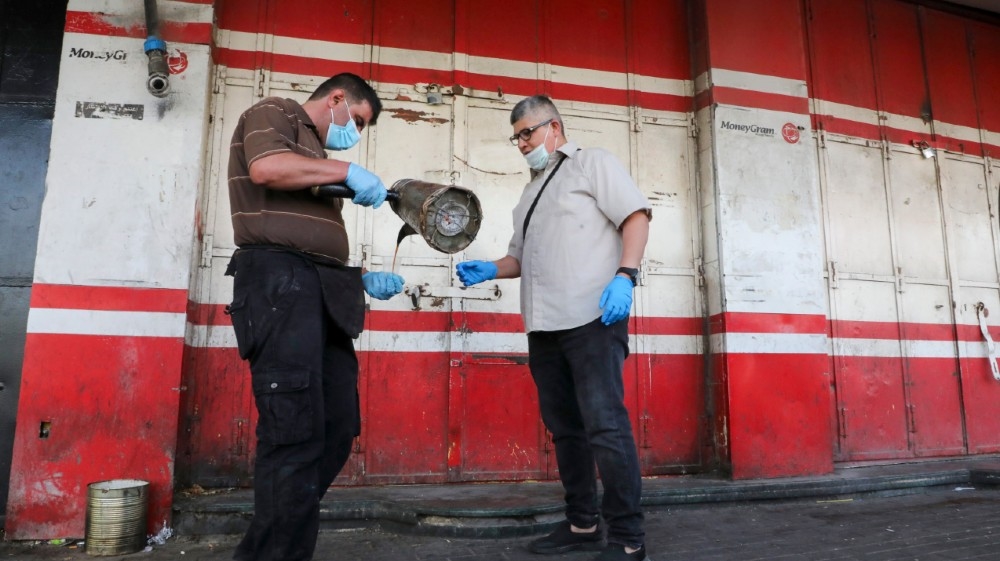Coronavirus cases double in a week in occupied West Bank
Palestinian health ministry reported 142 new cases, its highest daily jump since the outbreak began in March.

The number of confirmed coronavirus cases in the occupied West Bank has more than doubled in a week according to the Palestinian Authority (PA), after warning that a possible second wave of infections could be worse than the first.
The Palestinian health ministry on Monday reported 142 new infections, “the highest rate in a single day” since the start of the outbreak.
Keep reading
list of 4 itemsPeople killed in Israeli raid in West Bank as US, EU sanction more settlers
Palestinian Prisoner’s Day: How many are still in Israeli detention?
The Take: As missiles fly above, settler violence surges in the West Bank
A week ago, the ministry reported 430 cases in the occupied West Bank, by Monday the number of cases in the Palestinian territory had more than doubled to 903.

On Thursday, Palestinian Health Minister Mai al-Kaila warned of a possible second wave of infections, “more dangerous than the first”.
“Numerous cases have been discovered where the source of transmission is unknown, and medical workers have also been infected,” she said.
Most infections are traceable to Palestinians working in Israel or Palestinian citizens of Israel visiting the West Bank, Kaila said.
Israel has recorded more than 20,800 coronavirus cases, including 307 related deaths and authorities have said they are preparing for a second wave of infections.
In an effort to contain the spread of the novel coronavirus following the sharp rise in infections, the Palestinian authorities temporarily closed the cities of Hebron and Nablus on Saturday.
Nablus’s restaurants, clubs and salons, in addition to mosques and educational institutions, were closed for five days, while in Hebron similar business activities had to shut down for 48 hours.
Speaking to reporters on Saturday, Palestinian Prime Minister Mohammed Shtayyeh said infections rose due to people’s failure to follow the restrictive measures imposed to reduce the spread of the virus.
Palestinian authorities also urged Palestinian citizens of Israel to avoid visiting the West Bank and called on Palestinians working in Israel to stay home for 14 days if they travel to the West Bank.
|
|
A lockdown of the West Bank, in place since the first coronavirus cases were identified on March 5, was lifted at the end of May in a bid to strike a balance between economic survival and health security.
The fallout from the pandemic is expected to see the number of households living below the poverty line increase this year from 14 to 30 percent in the West Bank, largely due to Palestinians being unable to cross into Israel for work, according to a report published by the World Bank.
In the besieged Gaza Strip, Palestinian authorities have registered 72 COVID-19 cases, including one death. Gaza has been under an Israeli and Egyptian blockade since 2007.